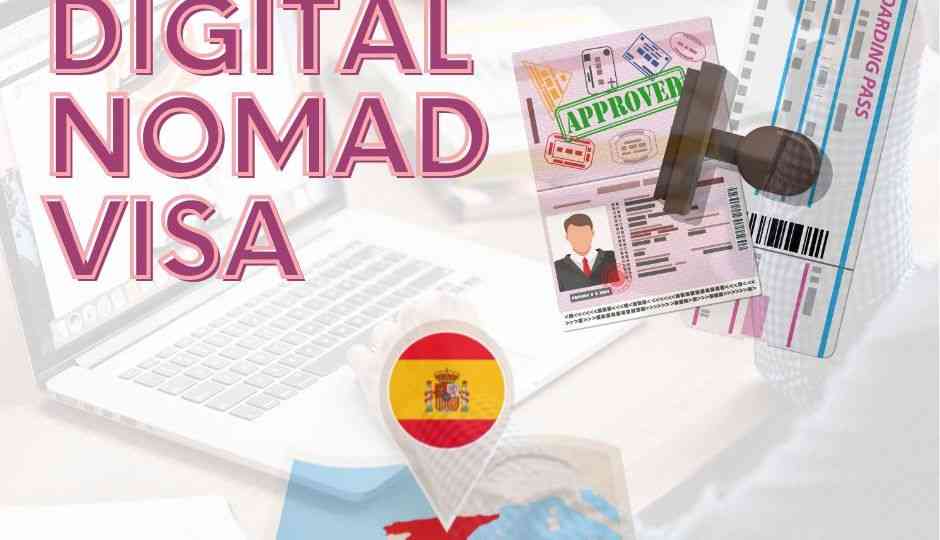
Portugal's Digital Nomad Visa Explained
In recent years, especially after the COVID-19 pandemic, remote work has been an increasingly popular option for people. A dream for some, digital nomadism allows workers to work from anywhere in the world, promising flexibility in residency and therefore choosing which place is both comfortable and affordable.
What’s more, according to a study by Robert Walters, almost half of all surveyed employees claim that they are more productive when working from home, while almost 80% of employers believe that the quality of work has improved. This means that not being tied to an office desk is not detrimental to productivity—it can in fact support it!
One country in particular, Portugal, sees this as an opportunity to boost their economy by attracting productive digital nomads. Think this lifestyle is right for you? Read on!
Portugal's Digital Nomad Visa OverviewPortugal's Digital Nomad Visa, or more officially known as the D8 Visa, is a national visa that allows digital nomads and remote workers to legally reside in Portugal for at least a year. It is designed to attract talents to Portugal and stimulate the country's economy.
The visa has is divided into two categories:
- Temporary Stay Visa: This option allows you to reside in Portugal for up to one year, with the possibility of extending your stay for a maximum of five years. It's perfect for those who want to experience the Portuguese lifestyle for a more extended period without committing to permanent residency just yet.
- Residence Visa: If you're ready to put down semi-permanent roots, the residence visa is the way to go. This track enables you to live in Portugal for longer than a year, opening the door to potential permanent residency after five years of continuous legal residence.
Let's be real though, Portugal isn't just handing out visas to anyone who claims they can work from their laptop. They want to see some proof that you're legit before welcoming you into their sunny paradise. So, who exactly qualifies for one of these coveted remote work visas?
First off, you've got to be an adult – at least 18 years old. They're not about to let minors go gallivanting around Europe unsupervised. Sorry, kids.
- Mavhunga puts DeMbare into Chibuku quarterfinals
- Ndiraya concerned as goals dry up
- DeMbare’s double boost
- ‘Zifa suspension won’t affect player transfers’
Keep Reading
If you're already an EU/EEA citizen, you can just skip this whole process – you've got that free movement thing going for you. But for the rest of us non-EU folk, you’ve got to show a solid remote gig lined up. Portugal wants to see contracts proving you're legit, not just some vague claims about "being an influencer". They need to know your income is consistent and adequate for your planned stay.
Speaking of income, there are some specific numbers to meet. For a temporary stay visa, you'll need to prove you've been raking in at least €3,040 per month for the three months leading up to your application. Going for a residence visa instead? Then you'd better be making at least €8,460 annually or have enough passive income to sustain yourself comfortably.
Last but not least, a clean criminal record is a must.
Portugal's Digital Nomad Visa Application ProcessOnce you've established that you meet the eligibility criteria, the application process is relatively straightforward:
- Apply online on the website of the Portuguese Ministry of Foreign Affairs;
- Book and attend an appointment at the Portuguese consulate. Bring all required documents. You can find all the checklist in this guideline;
- Pay the visa fee;
- If you're applying for a long-term stay, once your visa is approved, get set for an appointment with the SEF (Immigration and Borders Service) in Portugal. You'll need to bring the same documents and pay a fee.
- After your meeting with the SEF, and if everything is approved, you'll get a residency card sent to your address in Portugal.
As you will be in Portugal as a worker, the application and set-up process will also involve getting a Portuguese NIF (Numero de Identification Fiscal), a nine-digit number issued by the tax authorities of Portugal. You will also need to obtain health insurance that will adequately cover your needs in Portugal and the EU in general.
It's important to note that the visa application must be initiated from outside of Portugal, either at a Portuguese consulate in your home country or a country where you have legal residence.
Required DocumentsThe requirements for the Portuguese Digital Nomad Visa is similar to other work-based visas around the world. The requirements usually start with documents related to your identity, such as your valid passport and two visa application photos fulfilling requirements.
Then, you would need to prove your financial capability and commitment to abide by tax laws, with documents such as
- A bank statement, showing that you earn a minimum of €3,040 per month;
- Bank statement showing that you have at least €36,480 in savings;
- Tax documents, showing that you've paid taxes or received a tax refund;
- A Portuguese NIF (Numero de Identification Fiscal).
You would also need to show documents related to your work that show that you have a stable remote job such as contracts. It is also required to show that you are set up to live in Portugal by showing proof of housing in Portugal, health insurance, and other relevant documents. To understand the full requirements, check this guide.
Tips for SuccessNow you should be familiar with many of the formal requirements to get this Portuguese visa. Now, let us talk about some tips for success.
First, understand the visa duration you’re getting. Are you getting the temporary (one year) or residence visa? Plan your life around these periods.
Never rush in applying. Double-check all the documents and provide information on the application with official requirements to ensure accuracy. For example, make sure your bank documents are all valid and attested to avoid rejection or even accusations of fraud.
Allocate sufficient time before applying. If needed, you could get the help of immigration lawyers to get a “professional look” into your application and success chances.
In conclusion, be attentive to the requirements and considerations of this visa—remember, the success of your digital nomad relocation may depend on it! We wish you the best of luck as you navigate this exciting lifestyle, filled with the promise of flexibility, adventure, and new opportunities!











